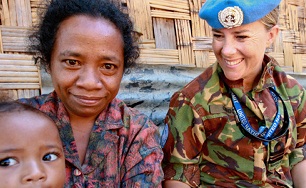
This year will mark the 100th anniversary of the declaration of March 8 as International Women’s Day. It is a day of great significance on women’s socio-political almanac. Today, to highlight this political event, women the world over are involved in many and varied activities to celebrate their achievements and to honour all those women, past and present, who made such achievements possible. In these celebrations, then, homage should first be paid to all those women who ensured the entrenchment of International Women’s Day.
In the face of the worsening socio-economic and political state and condition of most women worldwide, we must bear in mind that International Women’s Day (IWD) with its political and human rights theme and its denunciation of capitalist exploitative relations, was first celebrated in 1911 in Germany, Austria, Denmark and Switzerland, countries where Marxism and social democracy held political prominence.
At that time, over one million women were united in their fight for women’s right to vote, to work and to end discrimination through a series of rallies, in response to a socialist political event introduced by the Socialist Party of America. For, International Women’s Day has its genesis in the poor social services and the social inequalities expressed in the harsh working conditions and increasing levels of poverty working women, working class women, faced at the turn of the 20th Century, a period when capitalism had taken root and was in its glory days in the U.S.A. and Europe, and globalisation or imperialism, in its early expression, was mining the wealth of the countries of the South and exporting such wealth to their own countries to advance their own development.
Noteworthy, at this present time, is that although International Women’s Day was introduced by a ‘socialist’ party and is a product of socialist logic, it is being celebrated by all women, regardless of class, colour, race, culture, political hue and ideological predisposition, including some of those women who have now distanced themselves from anything ‘socialist’ or Marxist.
Embracing International Women’s Day as the women of the world continue to do, then, could be seen as an indicator that, perhaps, there was something good in the ideas and principles of ‘socialism’ and, today, given the dominance of market fundamentalism and globalisation, there is still need for a project of social justice, even if it is for women only: a project of social justice, which goes beyond the simple age-old demand by women for “women’s equality” and now, in recent times, the demand for an amorphous “gender equality”, since women are held together by a shared humanity, a shared bond and a common history of social exclusion.
In light of this, International Women’s Day 2011 should not be celebrated without purposeful thought and without reflection. We, as women and men at all levels of society, must be more reflective in our women’s celebrations this year because the social, economic and political condition of women, and in some instances, cultural traditions, have not changed fundamentally since the declaration of International Women’s Day in 1911, precisely because capitalism with its ideology of patriarchy and its reservoir of poor, unemployed and unwaged workers, most of whom are women, has not changed its character, and globalisation has only intensified that character.
Women continue to face ideological and social marginalisation although they are central to the processes of production and reproduction. Women continue to hold most low paying jobs as they continue to populate national workforces and the international political economy as the spinal cord of a system which holds them in subjugation to their male counterparts for whom the benefits and rewards of society are reserved.
Essentially, the present unjust system of social and economic existence, taken for granted for centuries, cannot offer women the political and economic foundation for their own liberation or emancipation from the injustices of society because that system of social and economic existence is governed and kept alive by a set of ideas which are incapable of creating social alternatives and which are unable to project a future for a liberated humankind.
Therefore, on the occasion of the 100th anniversary of International Women’s Day 2011, The Women and Development Unit, in conformity with the “Mission Statement” of the 1995 Beijing Declaration and Platform of Action, renews the call to political and civil societies to remove “all obstacles to women’s active participation in all spheres of public and private life through a full and equal share in economic, social, cultural and political decision-making” (p. 17) by providing a context of social justice where women’s rights are acknowledged as human rights which will be respected by all.
So, as we all mark this significant milestone, let us, as members of the human community, celebrate with purpose, reflect on the past and, to the extent possible, chart the way forward.
Judith Soares PhD, is Tutor/Coordinator of the Women and Development Unit, The University of the West Indies


About Judith Soares
JudithSoares,PhD,istheheadoftheUniversityoftheWestIndies'WomenandDevelopmentUnit.










